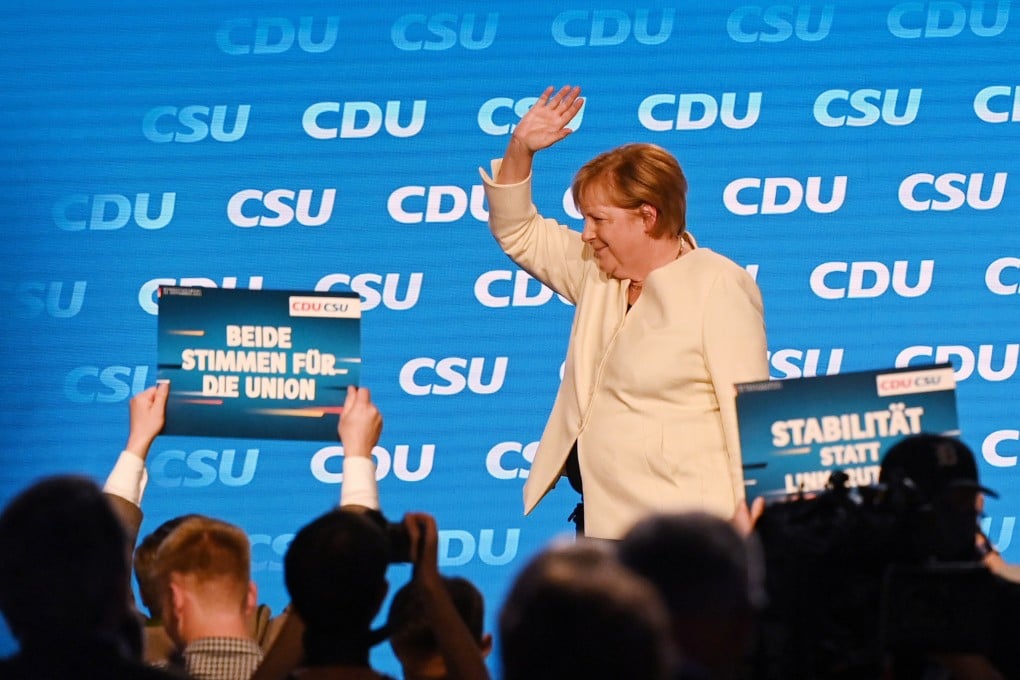Advertisement
Inside Out | Why Germany’s post-Merkel shift is no threat to China’s interests
- Beijing and other governments around the world are watching with trepidation as Germany’s first post-Merkel government takes shape
- German politics will be messy for a while, but US missteps in Europe have short-circuited any coalition of Western democracies unified against China
Reading Time:4 minutes
Why you can trust SCMP
3

If the European Union is the balancing power that can moderate the escalating tensions between the United States and China, then Germany is the balancing power within the balancing power. This makes the imminent retirement of Angela Merkel, and the seismic shifts in the recent German election, developments that we in Asia cannot ignore.
The election results are likely to produce an unprecedented three-party coalition between the Social Democrats (SPD), Green Party and Free Democrats (FDP). For China, the results are likely to deliver good news and bad.
Worst is the simple reality of Merkel stepping down. The longer the future coalition partners take to reach agreement on how they will share power, though, the longer it will be before Merkel goes.
Advertisement
During the last elections, in 2017, Merkel took six months to form her two-partner coalition with the SPD. This time, most pundits are predicting Merkel will still be acting chancellor well beyond Christmas.
For China and most of the world’s governments, Merkel’s departure is being watched with some trepidation. Her qualities – usually summarised as calmness, composure, sobriety, unpretentiousness, good humour, dependability, and impeccable skills in crisis management – have been indispensable over many international challenges and will be missed.
During her time in office, she has come to symbolise the stability and predictability for which Germany is renowned. Among her predecessors, Konrad Adenauer led the government for 14 years from 1949 and Helmut Kohl for 16 years from 1982.
Advertisement
Select Voice
Choose your listening speed
Get through articles 2x faster
1.25x
250 WPM
Slow
Average
Fast
1.25x

